Fennel is a perennial herb of the Umbrella family. The closest relatives of the herb are dill and anise, with which, incidentally, it is often confused. The plant is also known as Pharmaceutical Dill. Externally, the grass is a segmented white bulb protruding from the soil with protruding thick stems. Leaves and inflorescences resemble ordinary dill.
The plant has a medicinal effect. It is used in many areas of both traditional and traditional medicine. In addition to the mass of useful properties, fennel has contraindications to use. Medicines prepared on the basis of the plant are not recommended for use in convulsive conditions and varicose veins, as well as in the second and third trimesters of pregnancy.
Content
The chemical composition and general beneficial properties of fennel
The chemical composition of the plant includes the following elements:
| Group | Items |
|---|---|
| Vitamins | BUT |
| IN 1 | |
| IN 2 | |
| AT 5 | |
| AT 6 | |
| AT 9 | |
| FROM | |
| PP | |
| Trace elements | Iron |
| Manganese | |
| Copper | |
| Selenium | |
| Zinc | |
| Macronutrients | Potassium |
| Calcium | |
| Magnesium | |
| Sodium | |
| Phosphorus | |
| Other useful components | Essential oils |
| Antioxidants | |
| Phytonutrients | |
| Flavonoids |
Fennel is considered a low-calorie product, so it is often included in a variety of weight loss diets.
Seeds
Plant seeds have many medicinal properties:
- Digestive system. Elimination of pain in the abdomen, increased secretion of the glands of the digestive tract, mild laxative effect. Seeds are effective for flatulence, intestinal cramps, constipation and intestinal colic.
- The kidneys. They contribute to the normal functioning of these organs, the removal of stones and sand from the kidneys.
- Gall bladder. Improving the work of the body, treatment of cholecystitis and gallstone disease.
- Organs of vision.
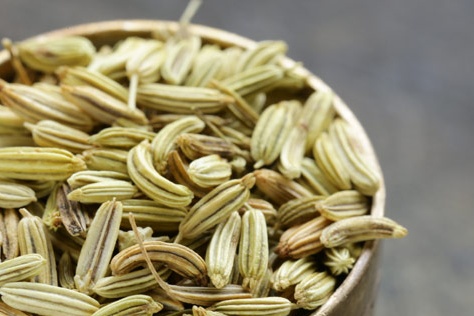
Elimination of inflammatory processes and irritations of the mucous membrane of the eyes, treatment of conjunctivitis. - Respiratory system. Sputum removal, cough relief, elimination of pain in the throat, hoarseness. Seeds are used to treat bronchitis, pneumonia, infectious colds.
- Leather. Antibacterial and antimicrobial action. Acne treatment. Therapy of mycoses in combination with other drugs.
- Nervous system. Normalization of natural sleep, elimination of depressive manifestations and treatment of neurosis.
Grass
Grass has the following pharmacological properties in relation to different systems and organs:
- The elimination of digestive disorders and the normalization of their work, the removal of gases and the prevention of their formation in the intestines, the stimulation of peristalsis, a mild laxative effect, the acceleration of the digestion process. Grass is used for diarrhea, constipation and other manifestations of indigestion. It is also effective in bloating, flatulence.
- Stimulating the production of hemoglobin.
- Grass is used to get rid of renal colic.
- Expectorant action.
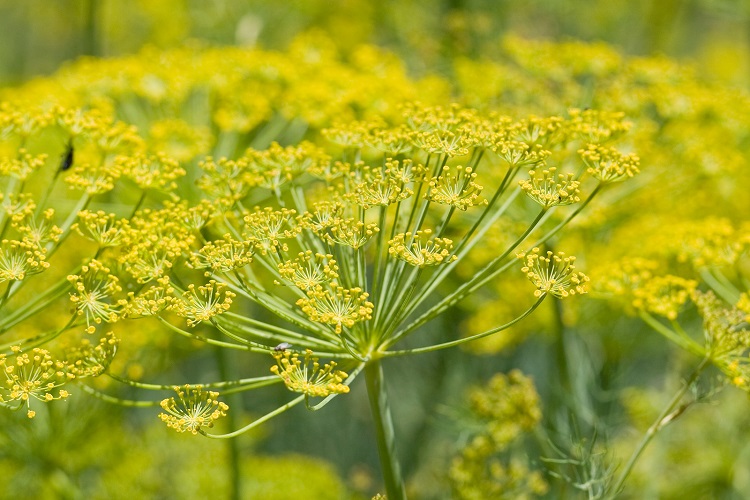
Medicines based on the aerial parts of the plant are used to treat diseases of the respiratory system, accompanied by cough. - Normalization of the menstrual cycle, elimination of pain during contraction of the uterus during menstruation.Increased urinary output and urination.
- Alignment of the hormonal background.
- Removing irritation and fatigue from the organs of vision, preventing some eye diseases, including macular degeneration.
- Stimulation of breast milk production.
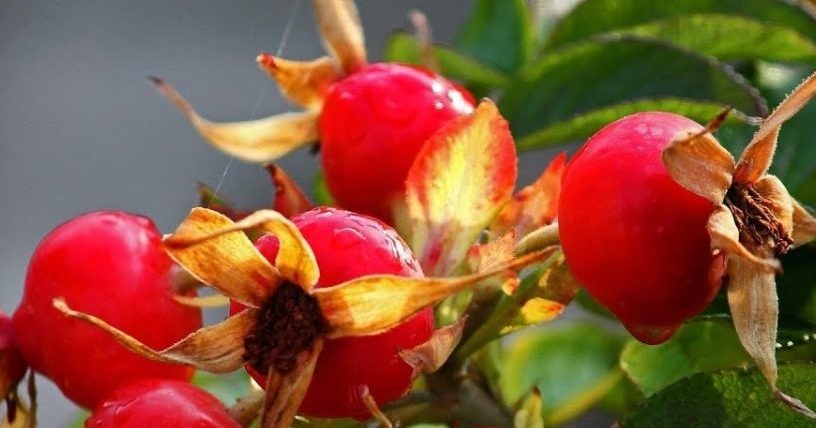 You may be interested in:
You may be interested in:The grass is also used in cosmetology to improve the condition of the hair.
Roots
The root of the plant has the following beneficial properties:
- Promotes vasodilation and normalization of blood pressure.
- Normalization of the digestive tract, stimulation of digestion, improved metabolism, normalization of stool, elimination of flatulence. Fennel root has a beneficial effect on intestinal motility.
- Prevention of oncological processes, suppression of the development of existing tumors.
- Normalize blood cholesterol, reduce the risk of cholesterol plaque formation. An increase in hemoglobin in the blood. The root of the plant is indicated for use in anemia.
- Sedative action. Medicines based on the plant root are used to relieve stress, eliminate unmotivated outbreaks of anxiety and fear. They are also used as a sedative for excessive emotional activity.
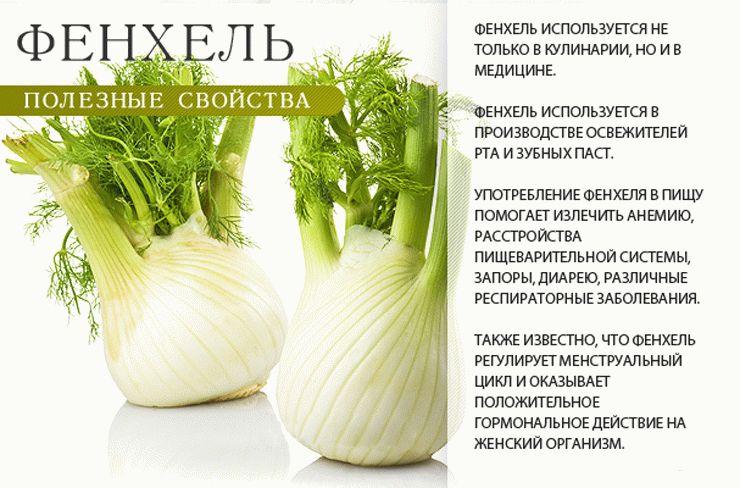
Useful properties of fennel - Prevention of age-related changes associated with visual impairment. Medicines based on fennel root are used to relieve eye strain.
- Normalization of the hormonal background of the body.
- Immunostimulating effect and prevention of infectious diseases due to bactericidal and antiviral properties.
- Slowing down the aging process. Antioxidant effect.
The root of the plant has a fusiform shape. This is one of the main distinguishing features of fennel.
The main contraindications and harm to fennel for the body
Fennel should not be taken by people with individual intolerance to this plant or patients with allergic reactions to certain of its components.
The question of the use of herbs during pregnancy is still open. Some gynecologists say that fennel is useful at the beginning of gestation, while others disagree with this proposition, warning about the threat of miscarriage after applying a medicinal plant. One way or another, a doctor should decide on therapy during pregnancy.
Patients suffering from epilepsy should also abandon the use of funds from the plant, especially its root. The substance dopamine contained in this herb can trigger an epileptic seizure.
With caution, medications from fennel should be taken to patients with hemorrhoids. Exceeding the recommended doses can cause bleeding.
With diarrhea, the medicine from the plant should be used only as directed by the doctor. In some cases, such therapy can only exacerbate the situation.
The use of tea from the plant during breastfeeding and the advisability of its use by infants are still the subject of controversy. On the one hand, the benefits of grass are obvious. But scientists are confused by the taxonomy of fennel. In a number of studies, plant oil has proven to be genotoxin, a substance that poisons the body at the cellular level. Therefore, the use of tea by lactating women and newborns should be limited to the recommended doses.
 You may be interested in:
You may be interested in:Rules for the use of fennel for medicinal purposes
The most common recipes for traditional medicine using fennel are presented in the table.
| Disease | Prescription medicine | Mode of application | |
|---|---|---|---|
| Single dose | Frequency | ||
| Gastrointestinal cramps | 1 tsp crushed seeds pour 100 ml of boiling water | 50 ml | 3 times a day 30 minutes before meals |
| Colic | |||
| Flatulence | |||
| Bronchitis | 5 g of seeds pour 200 ml of boiling water and boil over low heat for 30 minutes, leave for 1 hour to infuse, then strain | 2 tbsp. l | |
| Pneumonia | |||
| Cold cough | |||
| Cholelithiasis | 3 tsp grated seeds put in a thermos and pour 200 ml of boiling water, leave for 1 hour, then strain. | 3 tbsp. l | 4 times a day |
| Urolithiasis disease | |||
| Chronic pancreatitis | |||
With caution, medicines from fennel are used in infants, as well as women during pregnancy and lactation.
With colic in newborns
Most newborn babies suffer from intestinal colic. As a rule, they begin from 3-4 weeks of life and continue until 4 months of age. Bowel cramps can last up to 4 hours.
Choosing a medicine for a newborn baby is not an easy task, since almost all drugs are contraindicated for children of this age.
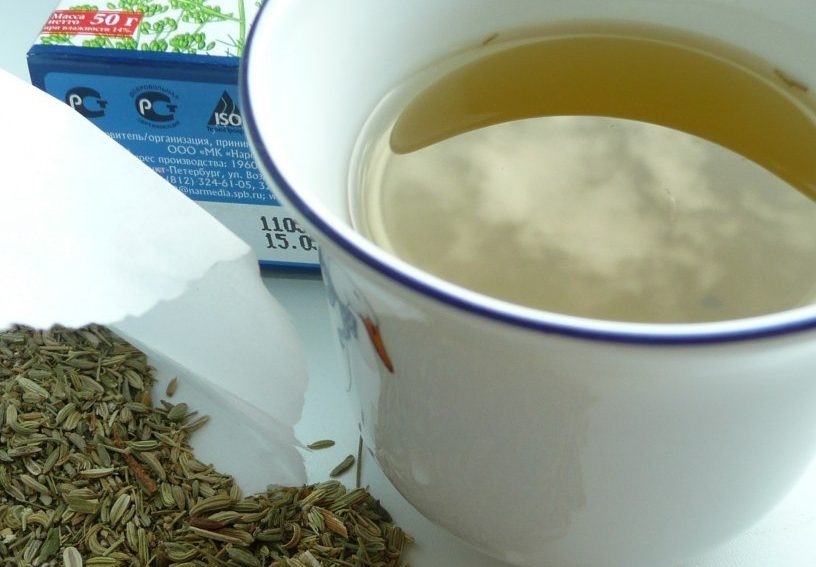
For the preparation of dill water 1 tsp. seeds pour 200 ml of boiling water. The resulting liquid is insisted for half an hour and filtered.
The need for the use of the drug, the frequency and single dose is determined by the pediatrician. Usually babies are given 1 tsp. medicines before and after feeding. The product should be stored, but it is advisable to prepare a fresh medicine every day.
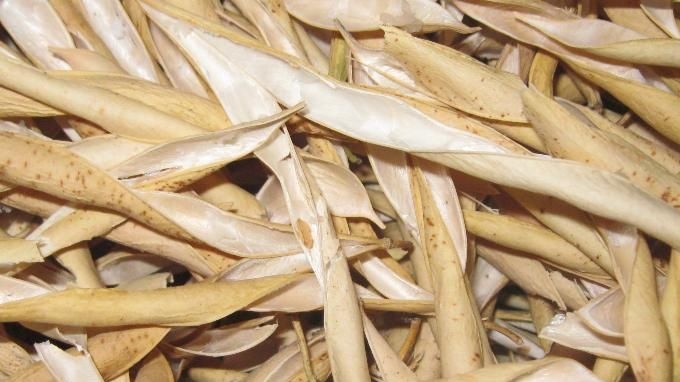 You may be interested in:
You may be interested in:During pregnancy
Tea from the plant can be prescribed by a doctor in the first trimester of pregnancy. In this case, the process of bearing a child should not have any pathological complications. The tool copes with toxicosis and causes appetite.
Many obstetricians protest against the use of fennel during pregnancy. The plant has a mass of active substances in its composition, respectively, its use can provoke a contraction of the uterus. In the early stages of pregnancy, it is fraught with miscarriage, in the late - premature birth.
The maximum allowable daily dose of tea is 100 ml. In fairness, it should be noted that the pharmaceutical companies that manufacture drugs based on fennel, make the period of pregnancy in the list of contraindications.
At GV
Numerous studies confirm the positive effect of fennel on women during breastfeeding. Herbal tea stimulates the production of breast milk, increasing lactation.
For tea 1 tbsp. l seeds of a plant fill in a glass of boiling water. For greater effectiveness, the drink is insisted for 2 hours. Tea take 2 tbsp. l half an hour before a meal.
Useful recipes with fennel
The plant is effective in controlling overweight. All its parts have an antioxidant effect, contribute to the improvement of lipid and water metabolism in the body. And fennel itself is a very low-calorie product. For weight loss take undiluted teas without sugar. You can prepare a weight loss remedy yourself:
- 20 g of plant seeds are brewed with a glass of water and insisted for at least 20 minutes.
- Fennel grass is mixed with dry linden blossom, chamomile and nettle in a ratio of 2: 1: 1: 1. 25 g of the mixture are brewed with 0.5 l of water.
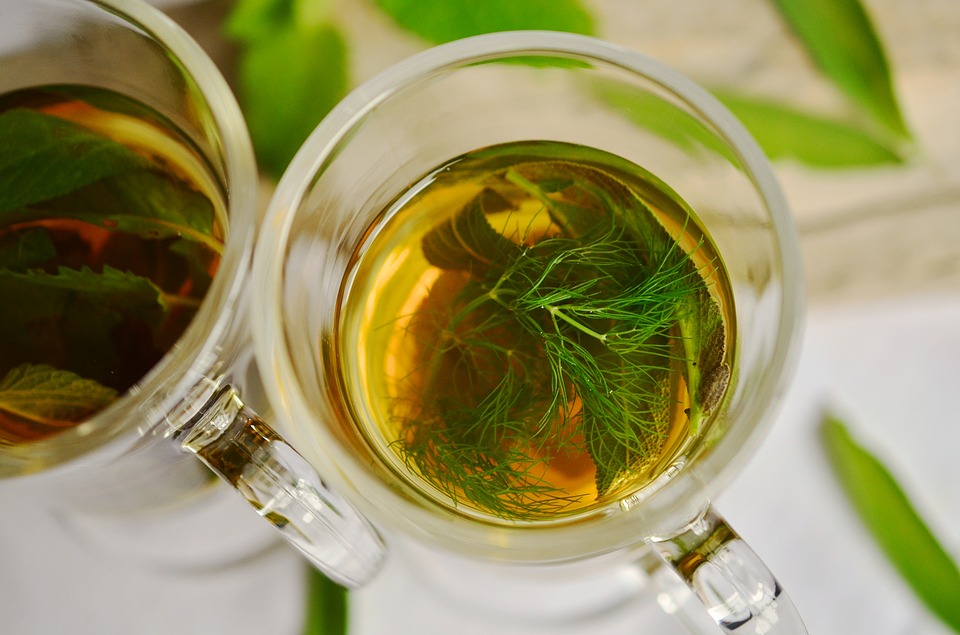
Tea is insisted for half an hour and drunk for 1 day. - Fennel seeds are mixed with green tea without additives and pharmacy chamomile. The mixture is ground on a blender, poured with boiling water and left for 15 minutes to infuse.
Chewing plant seeds helps to speed up metabolism. As a result, food is absorbed faster and does not have time to "settle in the sides." Chewing seeds is recommended before and after meals.
Eating seeds also suppresses hunger, reduces appetite. But you should not get carried away with chewing, since a high concentration of fennel in the body can seriously harm.
Common questions
Fennel is a very useful plant with a lot of medicinal properties. Despite the fact that herbal tea is given even to infants, improper use of funds from the plant can cause serious harm to the body.

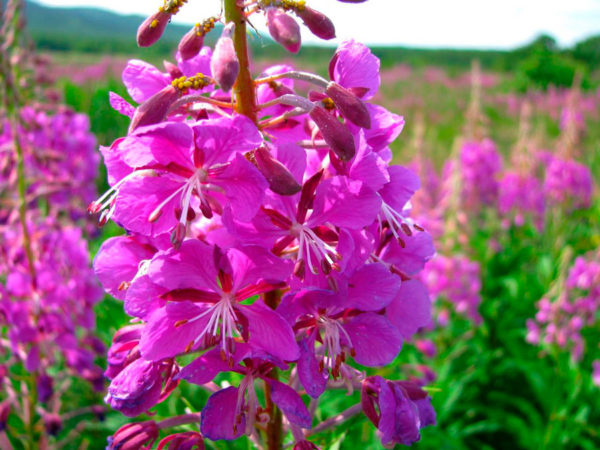
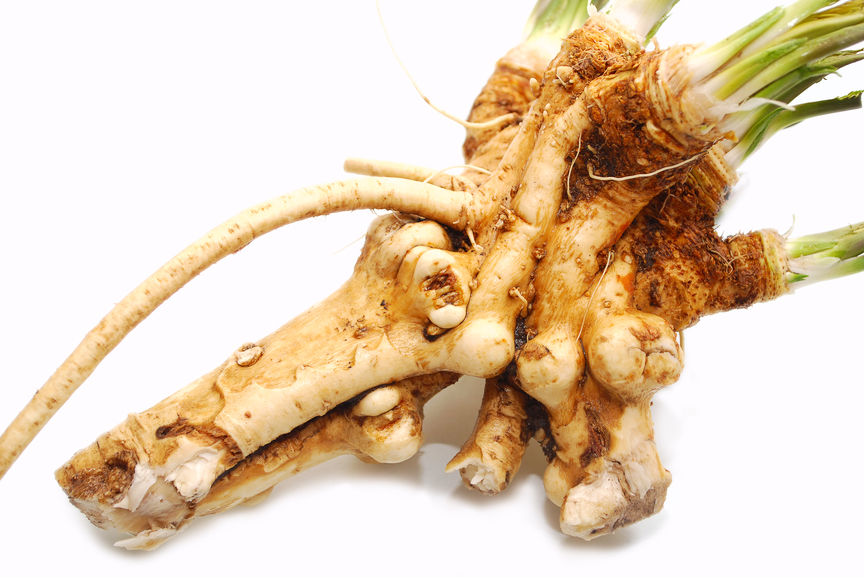
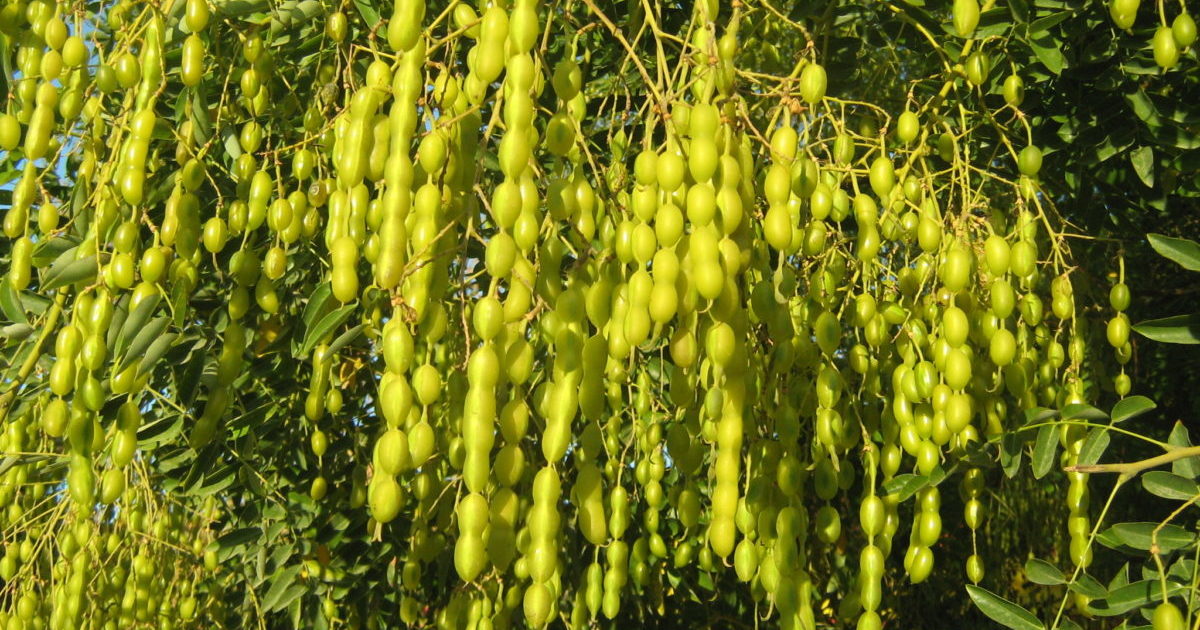
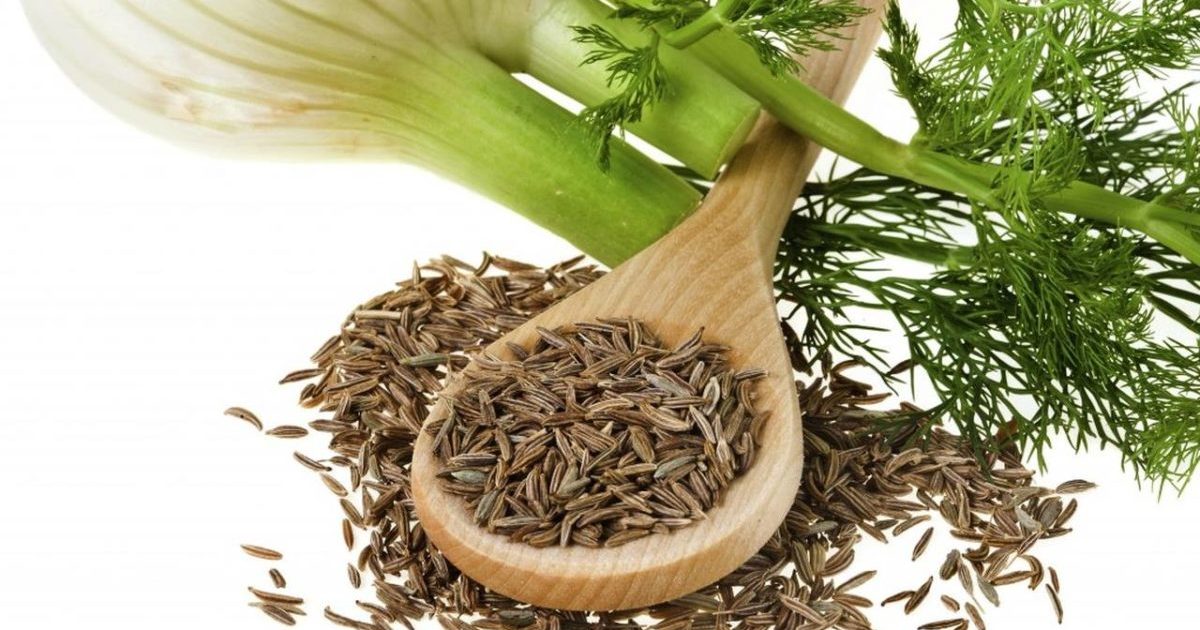 Fennel - beneficial properties and contraindications
Fennel - beneficial properties and contraindications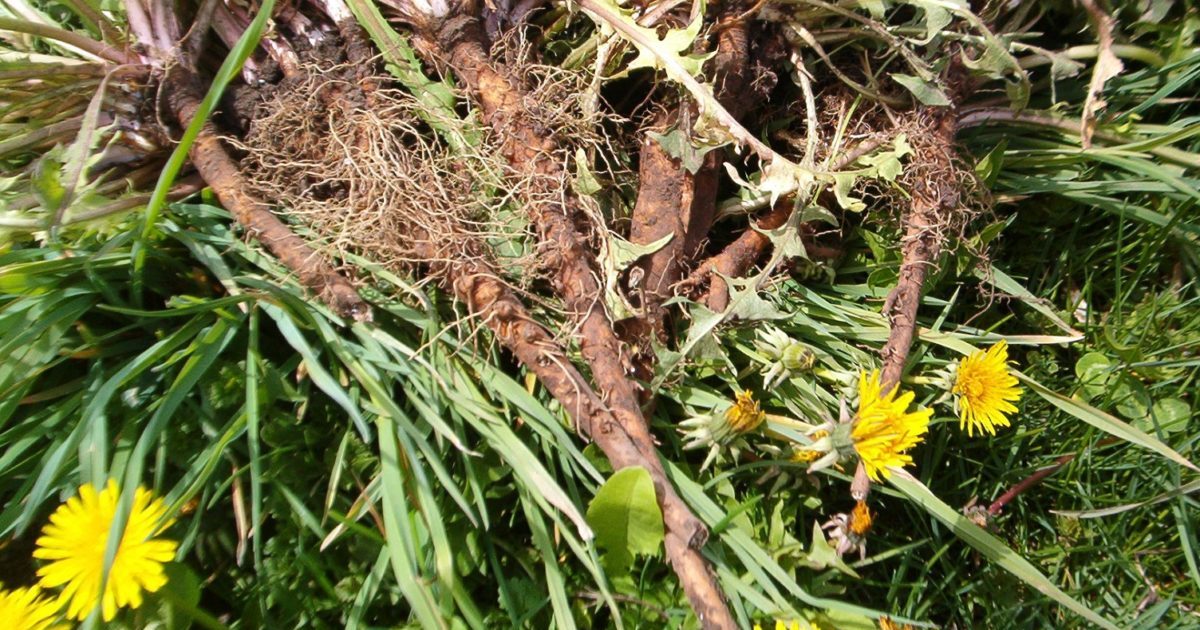 Dandelion Root - Health Benefits and Contraindications
Dandelion Root - Health Benefits and Contraindications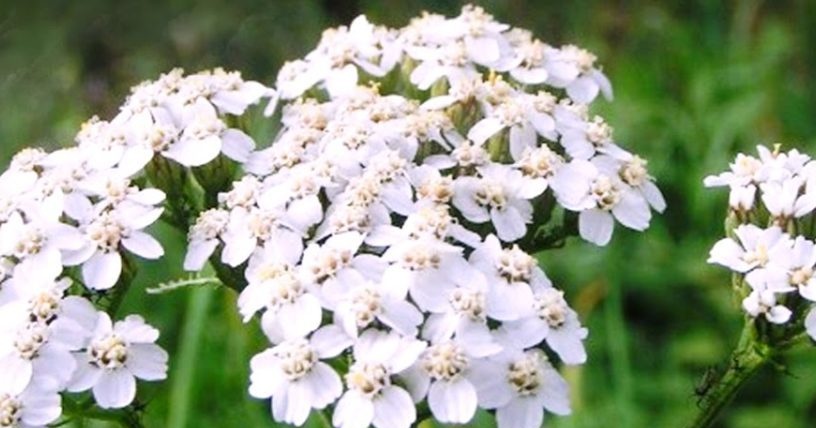 Yarrow - beneficial properties and contraindications for health
Yarrow - beneficial properties and contraindications for health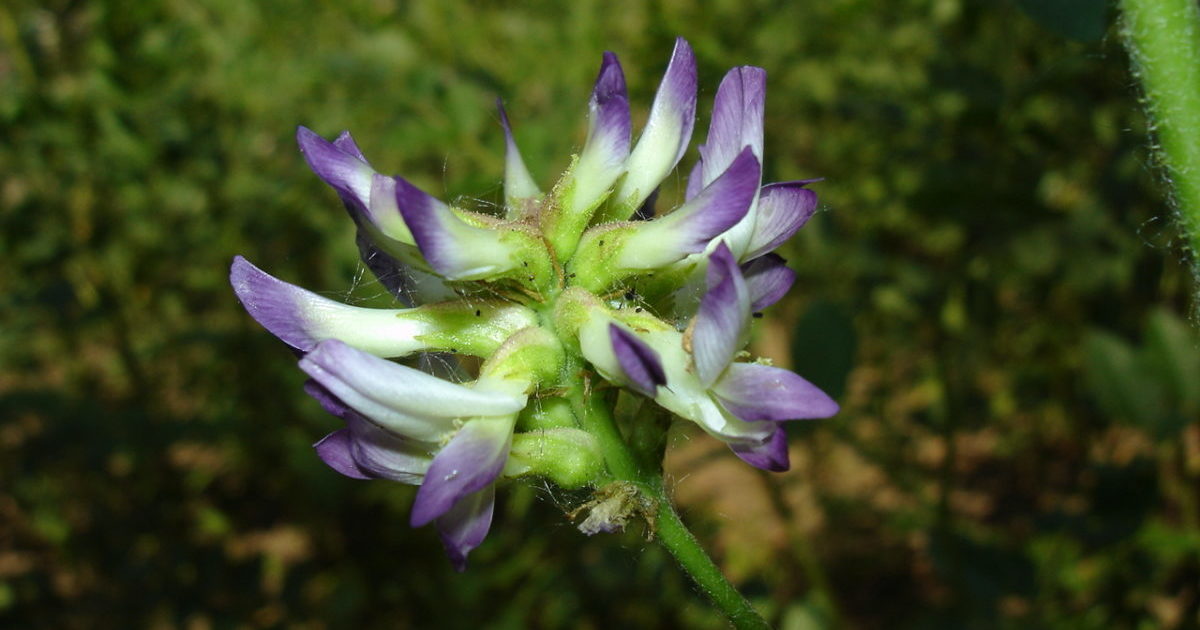 Licorice - beneficial properties and contraindications for health
Licorice - beneficial properties and contraindications for health